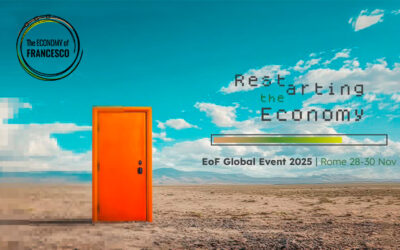Three exemplary figures, witnesses that dialogue among religions is possible, all died on 1 December. Men for fraternity. Passionate about the adventure of dialogue among believers of different religions. United by a desire to live in unity, whilst mindful of faith, culture and sensitivity. Imam Nedal Abu Tabaq, muftī of the Muslim League in Poland, the Theravada Buddhist monk Phra Ajahn Eiam, and Henri Teissier, Catholic bishop of Oran, in the north of Algeria, and archbishop of Algiers all died on the same day – December 1st. For their friends on the road of inter-religious dialogue, there remains the the task of taking up their inheritance and renewing their commitment to universal fraternity. Roberto Catalano who is co-responsible for inter-religious dialogue for the Focolare Movement recalls that the Mufti Nedal Abu Tabaq encouraged the start of a path of dialogue among Muslims, Christians and Jews in Poland. Working with believers of the three religions, he promoted numerous events including concerts, symposia and gatherings on the occasion of religious festivals. The latter were always opportunities to share beliefs, values and traditions and a time to create mutual understanding. He worked with the local authorities in the production of a “Calendar of the Three Religions: Judaism, Christianity, Islam”. In 2013 he established the “Day of Christianity among Muslims in Poland” on 29th May and the following year the “Day of Judaism among Muslims in Poland” on the 16th of the month. In 2014 the Mufti participated in an Interreligious Conference dedicated to Chiara Lubich, on the fifth anniversary of her death. He died a victim of the coronavirus pandemic. Phra Ajahn Eiam, a Thai Theravada Buddhist monk, is remembered for his encouraging smile, which always lit up his discreet, silent, meditative presence. He was committed to Buddhist-Christian dialogue. Suffering from a tumour, his condition deteriorated with the onset of Covid-19 infection. Bishop Henri Teissier, was born in Lyon and ordained a priest in Algiers in 1955. He was archbishop of the Algerian capital for twenty years. He was a man of dialogue, committed to understanding, respect and esteem among believers in Islam and Christianity. “A lover of Algeria, its people, its language and its culture,” the press agency of the Italian Episcopal Conference reminds us. “He led the Church in Algeria during the tumult of the 1990s, when nineteen nuns and priests and Bishop Pierre Claverie were all assassinated between 1994 and 1996.” Even during the difficult years of the civil war Archbishop Teissier “served the Church and fostered its very vocation of friendship and fraternity with the Algerian people.”. Following his retirement, he devoted his time to writing and participated in conferences all over the world. He died after suffering a stroke. Three exemplary figures, witnesses that dialogue is possible.
Claudia Di Lorenzi




0 Comments